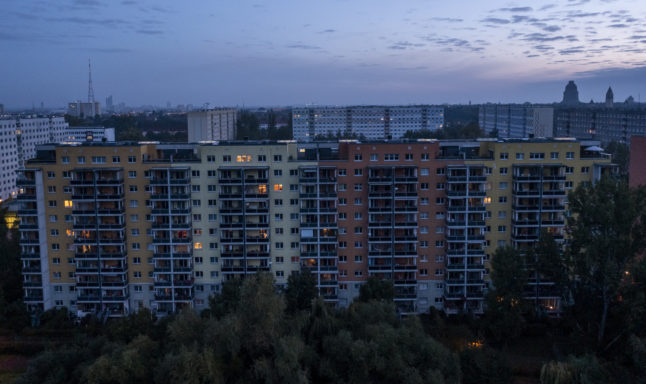The four major transmission system operators (TSOs) said the price of grid fees would be set at an average of 3.12 cents per kilowatt hour next year, slightly higher than the current average of 3.08 cents/kWh. For the first time, the cost will be at the same level across Germany.
Grid fees form part of the electricity bills paid by consumers, along with other taxes and production costs. The charges make up about 10 percent of private customer bills.
Those who live in the area of the network operator Tennet, which supplies Lower Saxony, Schleswig-Holstein and parts of Hesse and Bavaria, can, however, expect a slight decrease in the network fee.
In the rest of the country, grid fees currently stand somewhere between 2.94 and 3.04 cents per kWh. The four TSOs – 50Hertz, Amprion, Transnet BW and Tennet – said the price increases were due to the higher costs needed for procuring energy, following Russia’s invasion of Ukraine.
READ ALSO: Why electric fan heaters could make energy crisis worse
The cost for transmission networks has more than tripled from €5 billion to €18 billion.
To ensure that grid fees for customers do not also more than triple, the German government has pledged to give a subsidy of €13 billion.
“We are now making sure that these cost increases are absorbed, thereby preventing an additional burden for industrial companies, small and medium-sized businesses and consumers,” said German Economic and Climate Minister Robert Habeck. “We will use almost €13 billion to keep costs down.”
He said this would be carried out in connection with the planned electricity price cap.
READ ALSO: Germany to spend €200 billion to cap soaring energy costs
The coalition government, made up of the Social Democrats, Greens and Free Democrats, is planning to dampen grid fees in the medium term by skimming off high windfall profits from electricity producers to fund a price cap.
The money for the subsidy will also be covered by Germany’s Renewable Energy Act (EEG) funding. Electricity customers in Germany had to pay an EEG levy, aimed at boosting renewable energy, up until it was dropped earlier this year due to spiralling prices.
The German Association of Energy and Water Industries (BDEW) called on the coalition to take action quickly and introduce subsidies.
“It is right that a state subsidy is planned for this exceptional situation,” said Kerstin Andreae of BDEW.
The significantly higher costs would otherwise lead to increased network fees that customers would have to pay, Andreae said.
READ ALSO: German households see record hikes in heating costs
Vocabulary
Network fees/charges – (die) Netzentgelte
Electricity price – (der) Strompreis
Consumers – (die) Verbraucher
To increase/rise – steigen
We’re aiming to help our readers improve their German by translating vocabulary from some of our news stories. Did you find this article useful? Let us know.



 Please whitelist us to continue reading.
Please whitelist us to continue reading.
Member comments